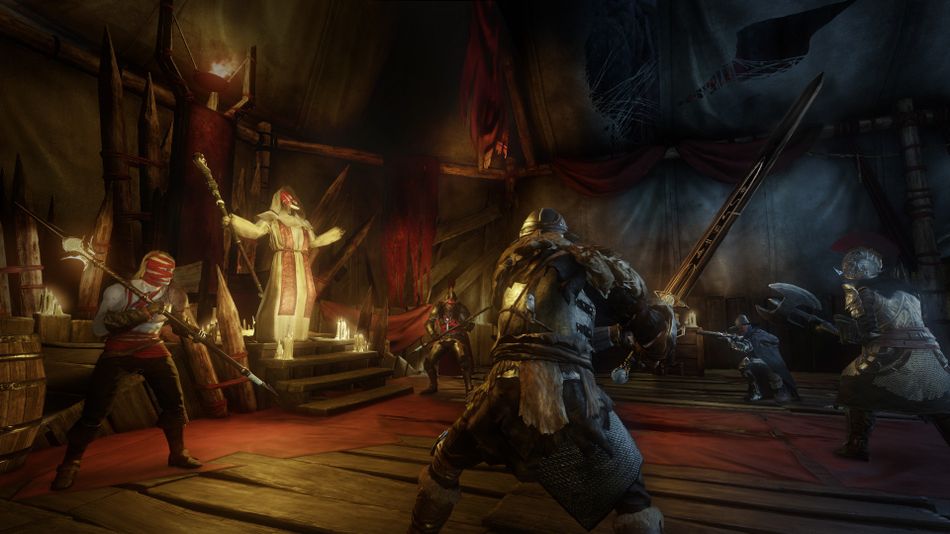Maybe it’s time for Amazon to take the ‘L’ on trying to build a thriving video game business before more jobs are affected?
The latest misstep for Amazon’s stumbling efforts to build and release its own video games is also a story about The Lord of the Rings. In 2019, the company announced plans “to develop and publish a free-to-play massively multiplayer online (MMO) game” — think World of Warcraft — based on author J.R.R. Tolkien’s beloved fantasy series.
Now, almost two years later and with nary a trailer, screenshot, or fact sheet released about the game, that project is canceled. Amazon confirmed as much in a report from Bloomberg’s Jason Schreier, who first heard the news from anonymous sources.
The report notes that the game, which was being built under a co-development partnership between Amazon Game Studios and Leyou Technologies Holdings Ltd. The latter studio, a China-based company, was acquired by Tencent back in December. And in the course of the contract negotiations around that acquisition, a dispute between Amazon and Tencent led to the Lord of the Rings cancellation.
Maybe it’s time for Amazon to take the ‘L’ on video games.
An Amazon spokesperson told Bloomberg that “we have been unable to secure terms to proceed with this title at this time.” It doesn’t sound like there will be layoffs, but Amazon does plan to put the Lord of the Rings team on other projects, effectively flushing their two years of work so far down the drain.
While it’s a tough outcome for fans, certainly, the game’s cancellation is more importantly another strike against Amazon’s game-making aspirations. The company does own Twitch, which hinges much of its success on popular gaming streams, and it’s also developing a cloud gaming service to rival Google’s Stadia, in Luna.
When it comes to actual games, though, Amazon has continually struggled. There was Crucible, the free-to-play online shooter that was conceived to compete with the likes of Overwatch. In an unprecedented-for-the-industry string of events, the game released in May 2020 and then went back into closed beta testing just two months later, in July 2020. Then, in October, Amazon just up and canceled the project. It had reportedly been in development since 2014.
The whole incident felt like an echo of a similar cancellation from a couple years prior, when Amazon pulled the plug in 2018 on Breakaway, a multiplayer game that was described as a “mythological sport brawler.” It was announced in 2016 and ready enough at that point to be something people could play.
Both of these games, with their colorful presentation, online focus, and hero-driven makeup, seemed implicitly designed to make Amazon’s gaming endeavors a presence in the esports scene. Probably due in part to the Twitch connection and the popularity of streaming gameplay. Though let’s be clear: Competitive online games are generally popular, and shooters like Overwatch or Call of Duty are among the biggest. Crucible in particular seemed intended to slide right into that category based on the Amazon link, and the support such a link promised, on its own.
These projects could have worked with a more concrete creative foundation holding them up. But the way they were both trotted out, it’s hard not to look at the two titles as concepts that were pitched as a business plan first and a creative endeavor second. They both arrived looking an awful lot like esports projects, but the experiences they offered weren’t quite there.

Image: amazon games
It’s a similar situation with New World, perhaps Amazon’s most promising game project at this point. It was first pitched as an MMO in which players, looking like 17th century European explorers, colonized an untamed land in a riff on early America. And while the game’s setting is fictional and fantastical, with players facing off against monsters instead of displacing an indigenous population, the tone-deafness in that premise and title raised plenty of questions.
(It’s worth noting that New World has undergone some changes since the original reveal, and recent looks have painted a promising picture. That title, though….)
Again and again, though, Amazon has demonstrated more apparent interest in releasing games as a business opportunity than as a creative endeavor. Many successful publishers will tell you that the best and most successful games manage to mix both of those things together in a seemingly effortless way. That’s a lesson Amazon still needs to learn.
All of that context now carries us back to this newly canned Lord of the Rings project. We’re not clear on the details of the contract dispute that reportedly killed the game, but it’s not unreasonable to speculate that Amazon saw it first and foremost as a Lord of the Rings-themed money tree. Tencent has major investments in the gaming industry and lots of experience to go with it, which raises the question of why and how such a seemingly slam-dunk project — The Lord of the Rings Online was already a successful MMO long ago — fell apart, and what role Amazon played given the history.
That history points to a pattern of unforced errors on Amazon’s part. From Breakaway to Crucible to the questionable creative choices on New World and now the Tencent break-up, these feel more like rookie mistakes than a string of “couldn’t be helped” coincidences.
Maybe the unexpected development of Tencent’s Leyou acquisition is to blame for Lord of the Rings. Maybe COVID killed any hope that the developers could bring Crucible together in the end. Maybe New World‘s tone-deaf introduction will be wiped away by a successful launch. (I’ve got no explanation for Breakaway; that game’s reveal doesn’t make a lick of sense to this day.)
At a certain point though, the excuses don’t carry much weight anymore. Maybe it’s all those things, just a coincidental series of missteps that paint an unfortunate picture. Or maybe, just maybe, the problem was Amazon all along.
